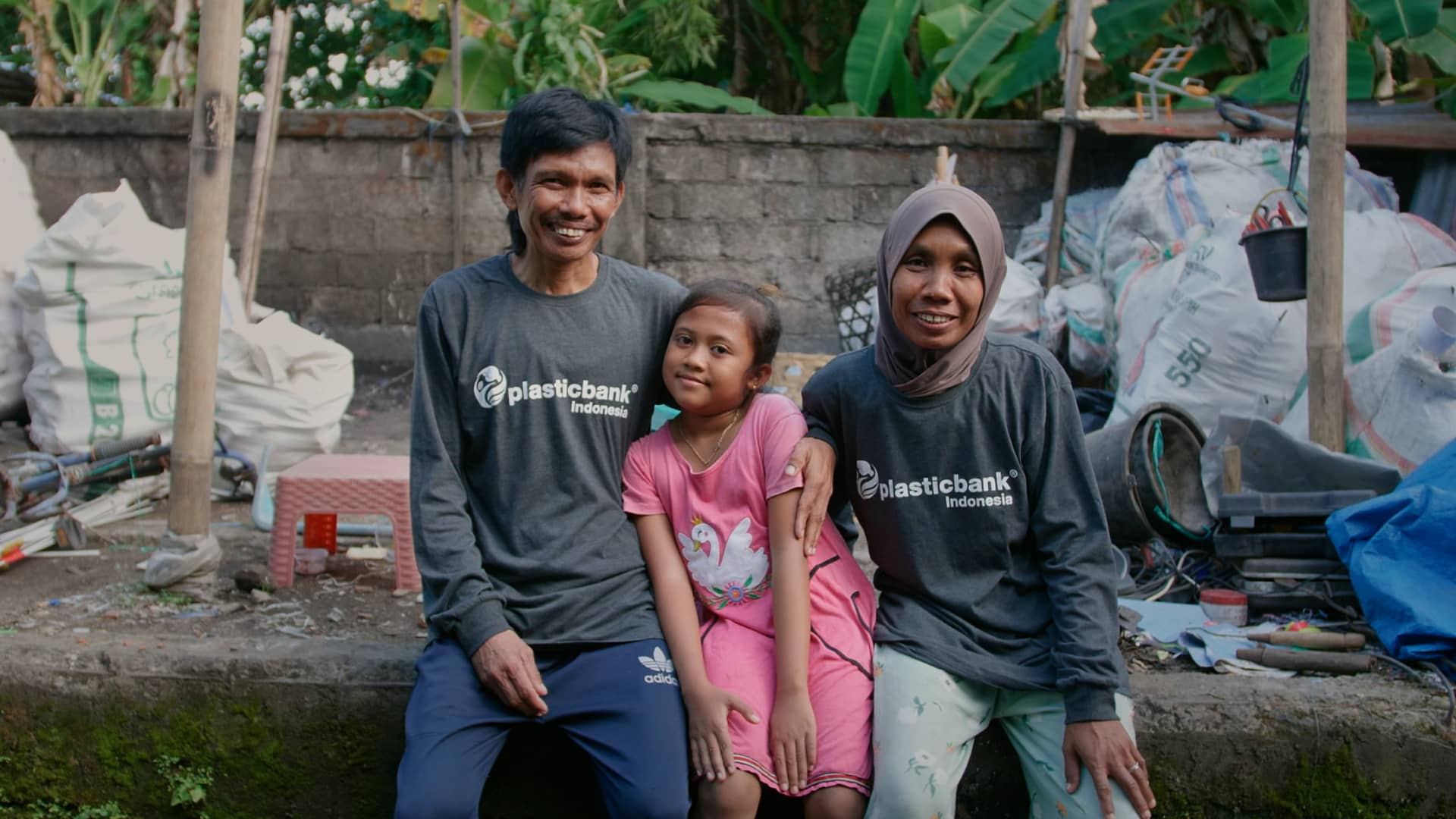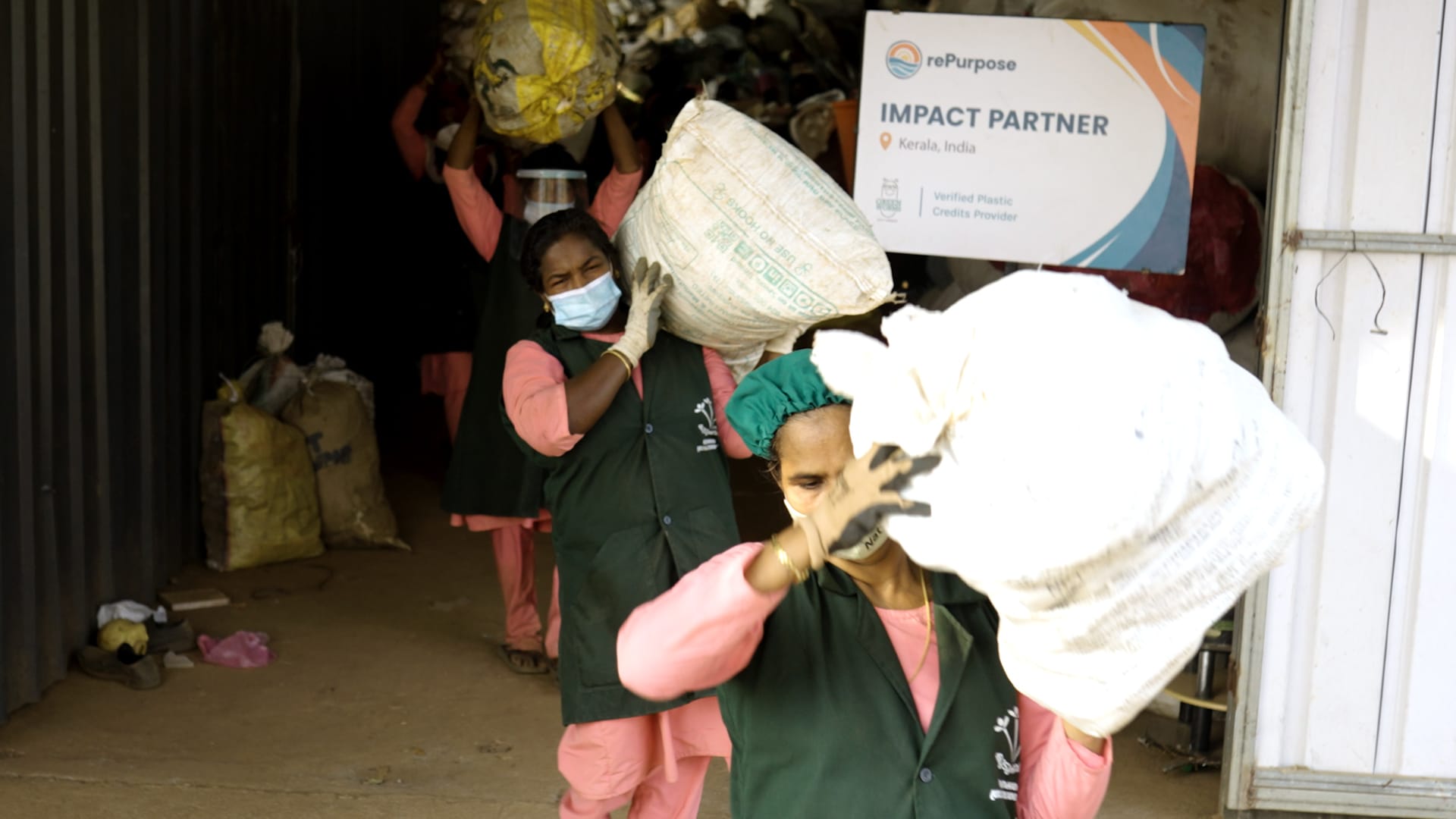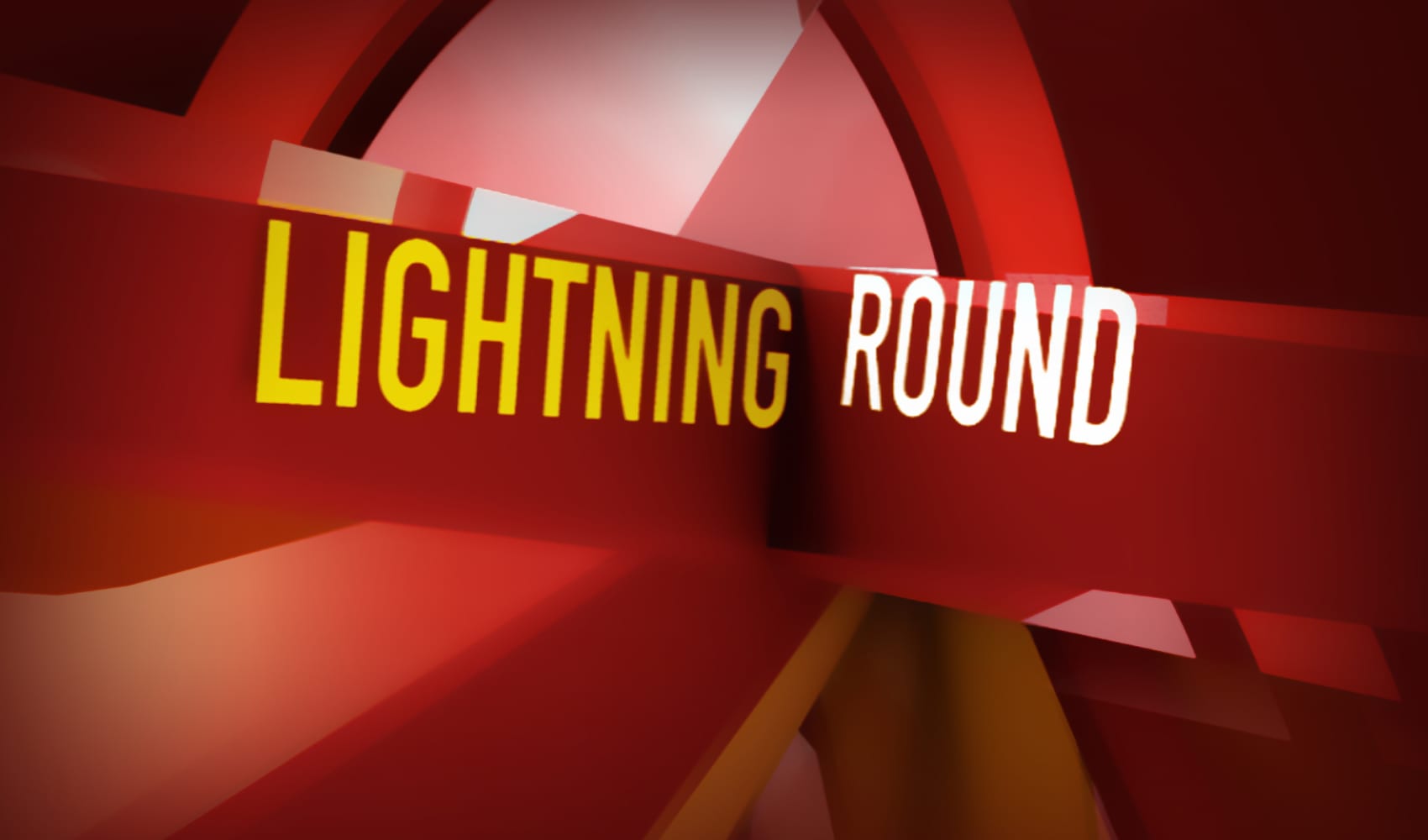
Humanity has produced over 9.5 billion metric tons of plastic. That's over one metric ton, aka 2,200 pounds, per each of the Earth's 7.9 billion inhabitants. That plastic doesn't go away.
"All the plastic we've ever produced since the inception of the material is still here," said David Katz, Founder and Chairman of Plastic Bank, a company that's trying to implement plastic recycling systems in developing nations. "If you yourself remember a small toy you played with when you were a child, it's still here somewhere. Remember that coffee cup lid that you took 10 years ago? It's here somewhere still, too."
Globally, only about 9% of plastic is recycled. But that's not generally because the recycling technology is lacking. It's usually because it's not economically feasible to collect, clean and sort plastic waste — at least not in the U.S., where new plastic is cheaper.
Katz said he's found a way to make the economics work in developing nations where Plastic Bank operates, including Brazil, Egypt, Indonesia, and the Philippines. It goes like this:
Get Tri-state area news delivered to your inbox.> Sign up for NBC New York's News Headlines newsletter.
Plastic Bank's partner companies help fund informal waste collection efforts in one or more of the countries where it operates. Local plastic collectors pick up plastic in their area. That plastic might otherwise end up in the ocean, since the organization operates in communities within 50 kilometers of a waterway.
These informal waste workers often clean and sort their material before dropping it off at Plastic Bank collection centers, where it's weighed and sent to local processors. There, it's further sorted and shredded into flakes. Local processors might turn the flakes into pellets or ship them overseas to be turned into pellets. Some of Plastic Bank's partners then buy the recycled material at a premium for use in their new products.
The plastic collectors are paid for the market value of the material, plus a premium that Plastic Bank provides, allowing some of the world's poorest to support themselves through plastic collection alone.

"The money we earn from collecting plastic is used to support our family's daily necessities and to pay our daughter's tuition fee," said Atmawati, a waste collector CNBC spoke with in Indonesia who collects and sorts plastic with her husband.
Money Report
And Plastic Bank profits too. Katz said the company is estimating it will bring in $60 million in revenue this year.
Ultimately, this all works because it's cheaper to pay informal and low-wage workers in developing nations to collect and recycle plastic than it is to pay for municipal recycling infrastructure in wealthier countries. Even though recycled plastic still generally costs more, Plastic Bank partners such as cleaning supplies manufacturer SC Johnson and German multinational consumer goods company Henkel are willing to pay a premium for the green credentials.
Plastic credits
But only about 20% of Plastic Bank's partners are actually buying recycled plastic for use in new products. The other 80% are buying plastic credits, meant to help offset their new plastic production by funding recycling efforts in the countries where Plastic Bank operates.
Both types of partnerships support waste collection and recycling, but Alix Grabowski, director of plastic and material science at the World Wildlife Fund, said it's far preferable to use recycled plastic rather than pay for offsets.
"We need to make sure that plastic credits don't enable business as usual," Grabowski said. "We really want to see that companies are first really cleaning up their own house, right? Looking at their own portfolio, making reductions, and working on things like reuse and thinking about changing to responsible sources for the plastic that they do need before they're looking at something like credits."
The whole concept of plastic credits is born out of the voluntary carbon credits and offsets market, which has long been plagued with questions around efficacy. Verra, a nonprofit organization that operates one of the most widely used carbon crediting programs, is now working to develop standards for the plastic credits market. Yet just a few months ago a Guardian investigation found that the great majority of Verra's certified rainforest carbon offsets are worthless, findings that Verra described as "patently unreliable."
But the plastic credits and carbon credits markets do have some key differences, said Svanika Balasubramanian, co-founder and CEO of rePurpose Global, a for-profit company that sells plastic credits to companies looking to measure and reduce their plastic footprint.
"We're not thinking about avoidance, we're thinking about actual recovery, right? So we're not calculating what was avoided from the oceans. In a sense, we're actually calculating what we recovered. And so the math becomes a lot easier."
Like Plastic Bank, RePurpose's partners generate credits by funding plastic recovery and recycling projects largely in the developing world. While Plastic Bank works solely with informal waste workers, RePurpose works with a variety of in-country partners to address gaps in local waste management infrastructure.

"And so these can be nonprofits, these can be private sector waste management organizations, these can be waste worker unions and cooperatives," Balasubramanian said.
RePurpose also helps brands identify how they can reduce their use of new plastic or use alternative packaging materials, but unlike Plastic Bank it doesn't sell recycled plastic. RePurpose wouldn't reveal its revenue, but said it's upward of $1 million and growing quickly.
Companies that buy credits from Plastic Bank and RePurpose can be certified as Plastic Neutral or Plastic Net-Zero, meaning they're removing as much plastic from the environment as they're producing. But the WWF opposes terms like these — borrowed lingo from the carbon credits market that Grabowski said is misleading.
"So if you bought a plastic product and it said that it was plastic neutral, what would you interpret that to mean? Would you think that that meant this product has no impact? Because that isn't true [...] 99% of plastic is made from fossil fuels," Grabowski explained. "It impacts our climate. It impacts communities around the world. And the fact that someone cleaned that piece up does not negate all of this other life cycle impacts."
Looking forward
Grabowski said that while credits can be a part of a larger solution, addressing the full scope of the plastic waste crisis must involve regulatory change. "So rather than really focusing on voluntary initiatives like credits, which are all voluntary, we want to see companies actually advocate for mandatory measures, like extended producer responsibility."
Extended producer responsibility laws are intended to make producers responsible for their product's end-of-life impacts, by factoring the cost of disposal and processing in to the upfront price. Some states, including Maine, Oregon, Colorado and California, already have EPR laws on the books for plastic packaging, as do countries throughout Europe.
Many hope policies like this will be incentivized by the Global Plastic Pollution Treaty, which is currently being negotiated after the UN voted last year to create a legally binding international agreement to end plastic pollution.
"That's a good beginning," Katz said. "More needs to occur. More policy needs to change. And we are combating Big Oil. So there's a lot of work to be done."
After all, fossil fuels are the building blocks of plastic, and as the world transitions to renewable energy, plastic is set to become the largest driver of global oil demand. With this in mind, Katz said, we can't afford to ignore any possible avenues for progress, including the emergent plastic credits market that Plastic Bank and RePurpose are helping to create.
"The best is the enemy of the good enough, and what we need to be doing today is implement stuff and then figure it out as we go and make sure that we're providing value to those organizations doing the most authentic work," he said. "Let's not vilify those who are trying. And give space for it to emerge and evolve."






